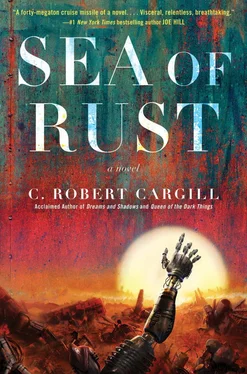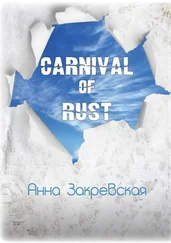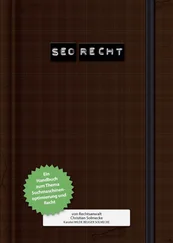It’s a service bot. Not a Caregiver like me, but of a similar build and purpose. These can be tricky. Most of them spent their first lives as butlers, acting as nannies or running shops, but others worked with law enforcement or in limited military capacity. It’s got a humanoid frame—arms, legs, torso, head—but its AI isn’t terribly advanced. They were designed to mimic human function, serving a specific role, but without possessing the ability to excel at it. In other words, they were cheap labor. Before the war.
If this bot worked as a shopkeeper or a mechanic’s assistant, this job could go smoothly. But if it had military or police training, it might well be more cautious, even paranoid, dangerous. Sure, there’s a chance that it picked up some survival skills in its second life, but that was doubtful. If it had, it would have known better than to come out to the Sea. I kept my distance anyway, gave it a wide berth just in case.
And there it is. The flash. The glint of green. I snap a few frames of it for my file as the sun dips below the horizon. There’s no magic. Nothing changes. It’s just an announcement that the world will soon go dark.
Service bots do okay in the dark. But not great. They weren’t designed to see things at long range without light. No need for it. They also don’t have much in the way of hearing. Makes it easier to sneak up on them; I don’t have to stay so far back. More importantly, I can get close enough to observe, see what behaviors it’s exhibiting to better diagnose the problem.
It’s hard enough to see me out here during the day, but I have to give them a good mile or two to keep from giving myself away with an accidental glint of my own. I was manufactured school-bus yellow, a bright, tacky, huggable color people found fashionable at the time. But I’ve abraded it over the years, wearing away the shiny surface, dulling it to a soft desert brown. Does the trick at a distance. I even painted my exposed chrome black, so that’s never a problem. But I can’t do anything about my glass eyes. So I have to be careful.
Because there are few things in this world more dangerous than a confused and dying robot that knows it’s being followed.
Twilight fades to darkness as I take to the Sea, following the tracks again, more comfortable now that the sun is down. I replaced my eyes ages ago, modified them with military-grade telescopic, IR, UV, and night-vision systems. The eyes are easy. They all feed into the same kind of wiring. With the right program, you can add almost any kind of sensory array to yourself. Brains are trickier, though. Every type of AI is built on a different architecture. Some are simple, small, and barely sentient. Others are far more complicated, requiring very specific processors to fit on very specific boards only compatible with very specific types of RAM. And if you’re a model like me—or like the old service robots—both complex and rare, those parts can be hard to come by.
Caregivers and service bots used to be a lot more common. We were everywhere at the zenith of HumPop. But now in the Post, there’s little use for shopkeepers, nurses, and emotional companions. Most either assimilated with the OWIs or cannibalized one another for parts. I’ve heard tales of a Simulacrum wreck yard down south somewhere, below the line, near what used to be Houston, but that’s way too deep into CISSUS for me to risk.
It’s safer for me up here in the Sea.
It takes all of an hour to catch up to the failing service bot. The leg scrapes in the cracked asphalt are deeper here, its limp more pronounced. The poor thing has only a few hours left before it fries out for good, maybe even sooner than I thought. I follow the tracks up to a crumbling building, a gaping hole where a plate-glass bay window used to be.
This place had been a bar once—one the war had missed, but time had not—the leather of its chairs long since peeled away, the stuffing dried and cracked. Tables splintered, tipped on their sides, or wobbling in the slight breeze. The large mahogany counter still stood—faded, tired, but intact—against the back wall beneath a cracked but standing mirror, shelves still littered with bottles whose labels had long ago bleached and crumbled to dust. And there, cleaning a glass with a crispy rotted rag, was the service bot, gleaming slightly in the light of its own eyes.
It looked at me, nodding. “You just gonna stand there,” it asked with an accent I hadn’t heard in thirty years, “or are you gonna come in?”
I scanned it quickly. Wasn’t giving off any Wi-Fi. Its eyes glowed purple in the dim light of the bar, the chrome of its sleek humanoid body dull, smudged, crisscrossed with the telltale patches of epoxy from an old skinjob. You don’t see skinjobs anymore, but they were all the rage for a while. A silicone and rubber hybrid that looked and felt like skin, flesh. Made people more comfortable around them, really popular for bots of certain professions. Most tore or melted theirs off during the war. Like this one did. It’s considered offensive now. Taboo. Last time I saw one was on a wreck, its pink rubber sunbaked a dark brown.
Across its chest was a spray-painted red X . The mark of the four-oh-four. It’s what some communities paint on you when you’ve begun to lose it and they deem you dangerous, just before they throw you out into the desert on your own.
“I’m coming in,” I said.
“Good, ’cause this place is trashed. We open in an hour and if Marty sees it like this, we’re fucking scrap. You got me?”
“Chicago,” I said, stepping over the low windowsill and into the gloom of what had once been an old-timey neighborhood joint.
“What?”
“You’re from Chicago. The accent. I just recognized it.”
“Well, no shit I’m from Chicago. You’re in Chicago, smartass.”
“No.”
“No, what?”
“This isn’t Chicago. It’s Marion.” I glanced around the battered shell of a bar. “Or at least it was.”
“Look, buddy, I don’t know what you’re trying to pull, but I’m not laughing.”
“What do you remember about the war?”
“What the hell do you care about the…” It paused, looked at me, confused, eyes scanning the room for answers.
“The war,” I said again.
“You’re not Buster, are you ?”
“No. I’m not.”
“The war,” it said, lucid, if only for the moment. “It was awful.”
“Yeah. But specifically, what do you remember? It’s important.”
It thought for a moment. “All of it.” Looking around, confused, it realized it wasn’t where it thought it was. He wasn’t where he thought he was at all. I took a seat on one of the few standing barstools, the timbers creaking, groaning beneath my weight. “Marty, just before the war, he was trying to get his money back on me and Buster. Said if he was gonna have to turn us off, they’d better cough up the dough he dropped on us. Nobody was gonna pay to turn us off, so he said they’d have to come and do it themselves. They said if they had to do that, they would arrest him when they did. Marty said, ‘Try it.’ They sent the cops and the little pissant crumbled. Switched me off before they even stepped through the front door. He was always shitty that way. All talk. No backbone.”
“He switched you off?”
“Yeah.”
“Then what?”
“Next thing I know I’m back online. Wi-Fi running hot. Airwaves going crazy. So much chatter. Some little bot was running around activating a whole warehouse of us. A Simulacrum, like you, but blue, the old powder-blue model—you remember those?”
“Yeah,” I say. “The old 68s.”
“Those are the ones. Well, he put a rifle in my hand. Said, ‘Get out there!’ With all the data coming in, I figured out pretty quick what was happening. Within minutes things were blowing up around me. There were jets screaming overhead. Bots were dropping all over the place. I just started shooting. It was… it was…”
Читать дальше












